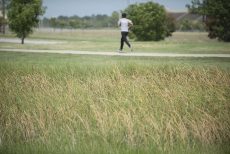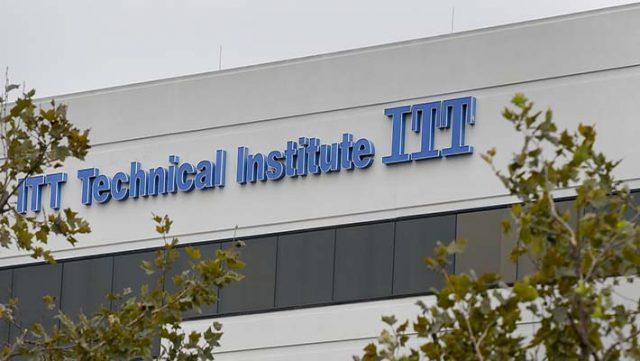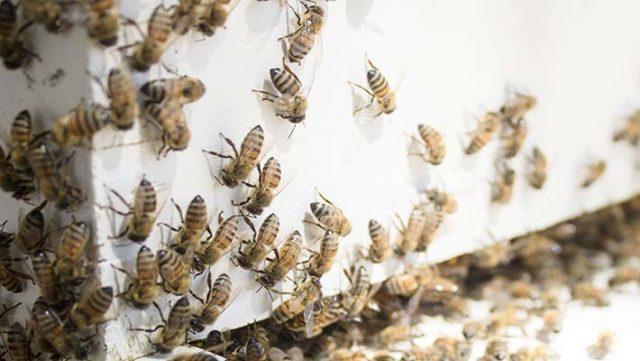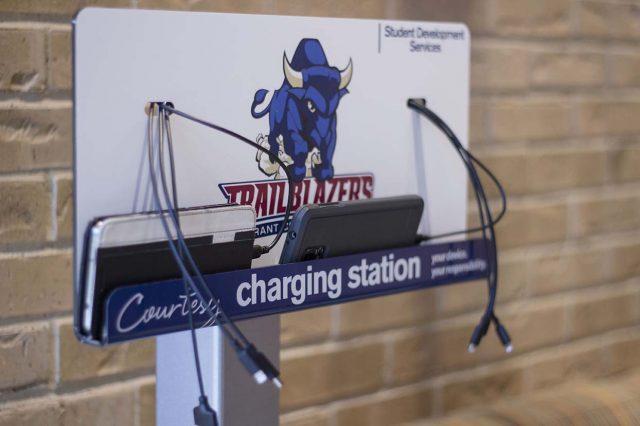By Martin Ramirez/ reporter

Peter Matthews/The Collegian
South Campus has vowed to save monarch butterflies.
In the spring, South Campus president Peter Jordan supported the National Wildlife Federation’s Mayor’s Monarch Pledge, promising to preserve and educate the community about these unique insects.
According to the pledge, the eastern population of monarch butterflies travels up to 3,000 miles from their U.S. summer habitats to Mexico’s wintering mountain forests. The monarch is the only butterfly to make an annual two-way migration.
But these pollinators are declining as habitat loss, pesticides and climate change all contribute to their plummeting populations. In 1996, the monarch population gathering in Mexico was more than 1 billion. Last year, the same population amounted to about 56 million — a decrease of more than 90 percent.
Jordan said South’s 160 acres creates an ideal environment for supporting the monarch butterflies.
“Our faculty believe that participation in the movement to save the monarch butterfly fits within the academic framework for learning at TCC, including the development of a highly educated and socially responsible citizenry,” he said. “Our participation in this effort will go a long way toward enriching the academic experience for TCC students, faculty and staff.”
Two South student organizations have shown interest in being involved in the pledge. In April, La Societe Francophone provided and presented 10 milkweed plants to South Campus.
Phi Theta Kappa’s Honors in Action project involved getting people to interact more with nature in different ways.
One of its solutions was to promote monarch butterflies.
PTK’s vice president of leadership Sopuruchi Obialasor said she was unaware of the pledge at the time the group picked the project.
“We [PTK] decided that if we could plant milkweed seeds in school, that would be one step,” she said. “Also, we have an induction ceremony every semester, so we decided to give out milkweed seeds to the inductees, explaining our reason for doing so. We also encouraged them to plant these seeds at home. Our goal was to get the whole community involved in this project.”
President Barack Obama has approved a strategy to protect pollinators such as monarch butterflies.
One of the strategy’s proposals is a plan to create a pollinator highway along the Interstate 35 corridor, which follows a main route for the annual monarch butterfly migration.
Kennedale mayor and assistant professor of government and history Brian Johnson was one of the first mayors in the nation to take the pledge.
When Fort Worth Mayor Betsy Price signed the pledge in 2015, TCC was identified as a potential partner.
However, South was seen as the model campus because of the focus on aligning appropriate milkweed and nectar plants along the I-35 corridor.
“South Campus is also ideal for a number of other reasons. It is completely ‘green’ — in regard to pesticides,” French assistant professor Floreen Henry said. “Monarchs have visited South Campus twice a year ever since I can recall. South Campus currently has extensive flower beds and a native wildflower preservation area south of SSTU, approaching the outdoor track.”
Henry is part of the South action group South Saves Monarchs. She said Jordan was committed to assisting in the pledge after learning of the decrease in monarch butterflies.
“One of Dr. Jordan’s initiatives is the creation of a future monarch sanctuary on South Campus, possibly near the new Center of Excellence for Energy Technology … creating an environmentally focused liaison of technology and nature,” Henry said. “Members of his action team are examining and reviewing this proposal.”
Although Obialasor graduated in May, she said she will continue to promote the pledge at her new school.
“My involvement is to raise awareness to the community so we can restore balance between the pressure to extract and convert the natural environment into productive areas and to conserve it,” she said.


























